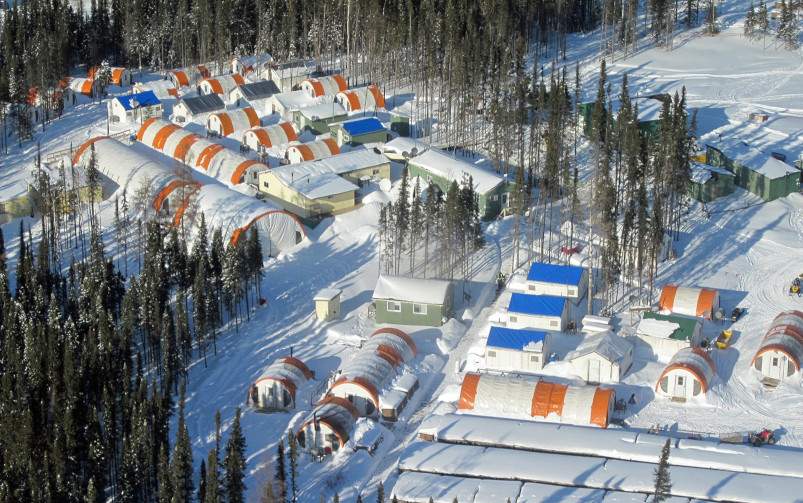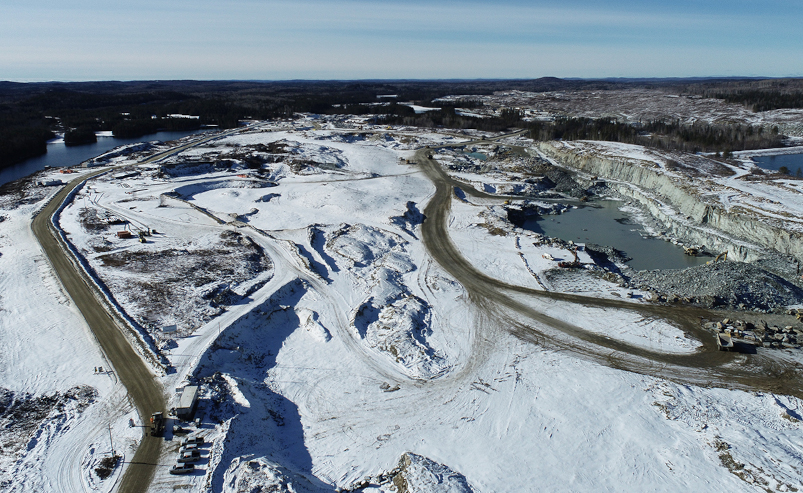Silvercorp is reporting a 57 per cent increase in measured tonnes at its GC mine in China. Courtesy of Silvercorp.
Welcome back to your weekly mining news recap for Aug. 27, where we catch you up on some of the news you may have missed. This week’s headlines include improved water reporting guidance, mandated rapid testing for northern Alberta oil sands workers and concerns over Chile’s new royalty bill.
Mineral exploration budgets are set to increase five to 10 per cent for 2022 following a big jump in 2021 according to S&P Global, as reported by Northern Miner. The spending is in response to solid price rebounds of metals over the last 12 months, with gold and copper hitting record highs. The growth is not anticipated to last, as budgets are expected to pull back between 2023 to 2025.
ICMM released an updated guidance to offer a better understanding of mines’ water usage to stakeholders. The guide is intended to improve corporate water reporting and how water reports are used and understood by stakeholders. The guide requires companies to provide detailed narrative explanations and volume of their operations’ interactions with water as well as their commitments to water stewardship.
A contractor working at Vale’s Copper Cliff operations died at the site of a fluid bed roaster baghouse, as reported by The Sudbury Star. Greater Sudbury Police Services and provincial Ministry of Labour representatives were called in to investigate the scene, and the ministry has been unable to confirm the cause of death of the worker who was found unresponsive. Since the fatality, Vale has offered its Critical Incident Stress Management Team to its employees and contractors at the site.
The president of Chile’s National Mining Society, Diego Hernández, told senators that a proposed three per cent copper royalty bill would make private mining in the country “impossible,” as reported by Reuters. Proponents of the bill have stated that its proceeds are needed to aid Chilean social programs affected by COVID-19. Support for the bill itself, which tracks its royalty percentage alongside metal prices, gained momentum when the price of copper soared earlier this year.
Workers at Canadian Natural Resources Ltd. Horizon and Albian oil sands mines will be mandated to comply with rapid testing protocols if they are not fully vaccinated against COVID-19, as reported by the Calgary Herald. Testing will commence Friday, Aug. 27 at the Calgary or Edmonton international airports (before flights to the camps depart), and at the access gates of the sites. Since October 2020, COVID-19 outbreaks have impacted both CNRL sites with 1,630 cases at Horizon and 351 at Albian.
The Kyrgyzstan government could face penalties of $1 million a day after a motion filed in a U.S. bankruptcy court by Centerra Gold Inc. in response to the seizure of the Kumtor gold mine, as reported by Mining.com. Kyrgyzstan’s state security service says it has established enough evidence to justify its takeover of the mine, and is investigating possible corruption in the deal that originally gave Centerra control over the mine.
BHP is at risk of receiving its lowest credit rating since 1995 as it exits its petroleum business, as reported by Reuters. BHP sold its petroleum business to Woodside Petroleum in a deal as part of its efforts to curb greenhouse gas emissions. According to S&P Global, BHP’s profile will now be much more dependent on its iron ore business, which could lower its CreditWatch ratings two notches to a BBB+, based on the group’s business risk profile.
In a new technical report, Silvercorp has reported increased mineral reserves and resources at the GC Mine in Guangdong Province, China. Measured tonnes have increased by 57 per cent due to the discovery of new veins and the conversion of indicated tonnes for 14.9 million ounces of silver from 5.286 million tonnes grading at 88 grams per tonne silver. The mine has a projected mine life of 13 years with the potential to extend with further exploration, and an average annual production rate of 310,000 tonnes with average silver equivalent grades of approximately 309 grams per tonne.
Learn how to transform a mining company for the digital age and how to obtain value from data through CIM’s upcoming event Mining 4.0: The Digital Mine Symposium. The virtual event will take place over three days starting Nov. 1. Its theme will focus on how to use data gathered by mining companies in new and interesting ways, with a plenary discussion or keynote speaker each day.
That’s all for this week! If you’ve got feedback, you can always reach us at editor@cim.org. If you’ve got something to add, why not join the conversation on our Facebook, Twitter or LinkedIn pages? Like your recap with a few more gifs? Check out our mining news recap stories on our Instagram.




